Team
Piotr Puchalski
Piotr Puchalski – PhD, Associate Professor of Modern History at the University of the National Education
Commission, Kraków (Poland), where he offers courses in the history of Poland, colonial empires, international
relations, and contemporary tourism. He has previously published in the Historical Journal and the Journal of
Modern European History. His first book is Poland in a Colonial World Order: Adjustments and Aspirations,
1918–1939 (Routledge, 2022), and he has also contributed to the edited volume The World Beyond the West:
Perspectives from Eastern Europe (Berghahn Books, 2022). His next project deals with Poland’s post-1939
colonial entanglements.
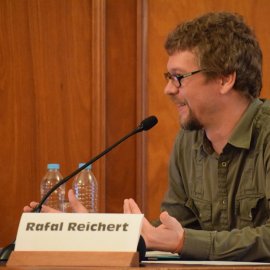
Rafał Reichert
Rafał Reichert, Master of Archeology of the former Institute of Archeology of the University of Warsaw since 2005; since 2010
Doctor of Colonial History, Instituto de Investigaciones Históricas, Universidad Nacional Autónoma de México (UNAM). From 2021, assistant professor at the Institute of Iberian and Ibero-American Studies at the University of Warsaw.
In the years 2013-2021, he was a researcher at the Centro de Estudios Superiores de México y Centroamérica (CESMECA), Universidad de Ciencias y Artes de Chiapas (UNICACH), Mexico.
Nautical Archeology Society (NAS) Instructor. Member of the Red Imperial-Contractor State Group, which studies the military and economic history of Spain and its American colonies.
Member of the "History" Discipline Council at the University of Warsaw. Member of the editorial board of the quarterly "Ameryka Łacińska" (Iberian Studies, University of Warsaw).
Specialist in the colonial, economic and military history of the Greater Caribbean and New Spain, as well as maritime archaeology.
Author of the books: From Cortés to Bolivar. Outline of military history in Spanish colonial America, PWN, Warsaw (2021); Sobre las olas de un mar plateado. La política defensiva española y el financiamiento militar novohispano en la región del Gran Caribe, 1598-1700, UNAM, México (2013).
Between 2018-2022, he implemented the project: The role of wood supplies from the southern Baltic Sea and the viceroyalty of New Spain in the development of the Spanish maritime empire in the 18th century (2017/25/B/HS3/01017), which was financed by the OPUS-NCN program.
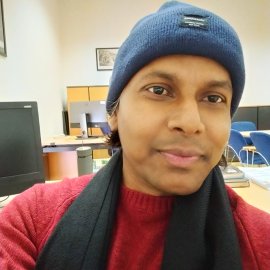
Pankoj Sarkar
My research interest is history of science—environment, agriculture, and maritime are of
particular interest. Currently, my research focus is to examine the evolution of
environmental science and knowledge production in the Indian Ocean world, especially
from the mid-19 th century onwards. It aims to understand the historical exclusion and
inclusion in science and knowledge production endeavour during the era of colonialism as it
has a deep-rooted and wider repercussion while dealing with the environmental
crisis—approaching, understanding, combating, etc. —both in the global north and global
south even today.
Before Joining the University of Warsaw in 2023 I was serving as a fellow at the German
Maritime Museum-Leibniz Institute for Maritime History, Bremerhaven, Germany. I
completed Master of Philosophy and PhD from Tata Institute of Social Sciences, Mumbai,
India, in 2012 and 2020 respectively. My previous research (PhD) broadly looked at science
and knowledge production endeavours in agriculture in colonial India.
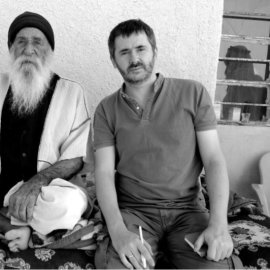
Artur Rodziewicz
M.A. (2001) and Ph.D. (2009) from the Institute of Philosophy, UW. He also studied at Imam Khomeini International University, Iran (2012), Department of Ethnology and Cultural Anthropology, UW (B.A. 1999), and as an unenrolled student at the Institute of Classical Philology, UW and the Department of Arabic and Islamic Studies, UW. Assistant Professor at the Department of Intercultural Education, SGGW (2010-2015), Faculty of Oriental Studies, UJ (2016-219), Institute of Ethnology and Cultural Anthropology, UW (2020-). Lecturer in Philosophy at the International Yezidi Theological Academy in Georgia (2021-). NCN grant holder (Fuga 5, Opus 17, project leader: Eros and the Pearl in the Yezidi Cosmogony; The Georgian Yezidis. The specificity of the Diaspora and its Relations with the Iraqi Homeland). Co-founder and deputy editor-in-chief of the "International Journal of Yezidi Studies" (yezidistudies.org). Author of the first Polish translations of Yezidi sacred hymns (Jezydzkie hymny kosmogoniczne: “Hymn o Nieszczęsnym Rozbitku" (Qewlê Zebûnî Meksûr) i “Hymn o Be i A" (Qewlê Bê û Elîf), “Przegląd Orientalistyczny” 265–266 (2018), pp. 207–222). Research interests: the Yezidis, their religion, migration and diaspora, the ethno-religious diversity of Kurdistan, Sufism, the presence of threads of Greek philosophy in the Middle East. He has carried out fieldwork in Georgia, Armenia, Turkey, and Iraq. He is currently working on a monograph on Georgian Yezidis and Yezidi holidays.
Artur Rodziewicz Research project
Description of the Research Project
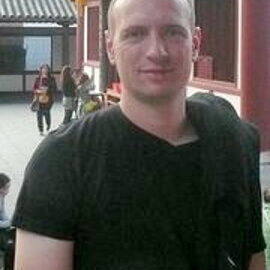
Igor Chabrowski
IDUB I.3.13 Action Team
Born in 1982. BEdu in 2004: University of Warsaw, Centre for Foreign Language Teacher Training and European Education, University College of English Language Teacher Education; MA in 2007: University of Warsaw, Department of History, Institute of History. In 2005-2006, I studied at the Beijing Foreign Studies University (Beijing, China), and in 2007-2008 at the Sichuan International Studies University (Chongqing, China). In 2010 I received a Master of Research and in 2013 a Ph.D. in History and Civilization (specialization: modern Chinese history) from the European University Institute, Department of History and Civilization (Florence, Italy).]
Academic positions: in 2013-2014: Departmental Lecturer in Modern Chinese History, University of Oxford; fellow of Merton College. 2015: Visiting Lecturer, Institute of History, University of Warsaw. 2015-2017: Postdoctoral Fellow, Centre of China Studies, The Chinese University of Hong Kong; fellow of the “Historical Anthropology of Chinese Society in the Twentieth Century.” 2017-2018: Lecturer, Centre of China Studies, The Chinese University of Hong Kong. From 2018: Lecturer and then Assistant Professor (2019–), Faculty of History, University of Warsaw.
Research interests: Qing (1644-1911) and twentieth century Chinese history, Chinese popular culture, religion, opera and performing arts; global colonial and imperial history; history and culture of communist Eastern Europe; global Cold War in China and Southeast Asia.
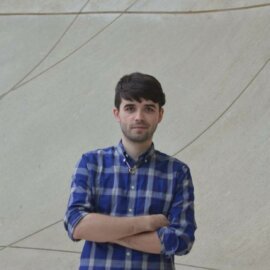
Mariusz Kałczewiak
Warsaw Centre for Global History
Mariusz Kałczewiak is a social and cultural historian of modern Eastern Europe and Latin America. His areas of expertize include Jewish Studies, Historical Migration Studies and Historical Gender Studies.
Dr. Kałczewiak completed his graduate studies at Tel Aviv University, where he earned a PhD in History (2017). He holds a MA in International Relations (Major: Latin American Studies) from the University of Warsaw (2011).
He joined the University of Warsaw in 2021 and since 2017 has served as a Senior Research and Teaching Associate at the Slavic and Eastern European Studies Department at the University of Potsdam. Dr. Kałczewiak held fellowships at the University of Florida, POLIN Museum of the History of Polish Jews in Warsaw, Brandeis University, University of Haifa, Ministry of Science, Research and Culture of Brandenburg or Alexander von Humboldt Foundation.
His scholarship has appeared in American Jewish History, European Journal of Jewish Studies, Jewish Culture and History or East European Jewish Affairs.
His first book Polacos in Argentina. Polish Jews, Interwar Migration, and the Emergence of Transatlantic Jewish Culture (Alabama University Press 2020) recreates a mosaic of entanglements that Jewish migration wove between Poland and Argentina in the first half of the twentieth century. The book has won the 2020 Best Book Award of the Latin American Jewish Studies Association.
Dr. Kałczewiak’s current research project explores the evolution of Polish-Jewish masculinities between the 1890s and 1930s. Making an argument that gender studies shed new light on the ethnic history in Eastern Europe, it looks on how the Polish-Jewish ideals of masculinity were constructed and performed. The areas which this project explores include diverse social spaces: yeshivot and beis midrashim, army, or university fraternities.
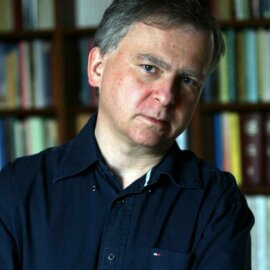
Dariusz Kołodziejczyk
Warsaw Centre for Global History
B. 1962; PhD 1990, University of Warsaw; post-doctoral degree (habilitacja) 2001; professor since 2013. Has been employed at the Institute of History, University of Warsaw, since 1988 as assistant lecturer, assistant professor, associate and full professor. Research associate: Harvard University Ukrainian Research Institute 1991-1992; Nahost-Institut an der Universitaet Muenchen 1994-1995. Visiting professor: University of Notre Dame 2004, Hokkaido University 2009, Collège de France 2011. Member of the Academia Europaea and honorary member of the Turkish Historical Society (TTK). President of the CIEPO (Comité International des Etudes Pre-ottomanes et Ottomanes) since 2018. Assistant Director for International Relations 2002-2008; Director of the Institute of History 2012-2016; Chair of the Department of Early Modern History 2010-13 and since 2019. Academic interests: history of empires, borders and frontiers, global history. Non-academic interests: diving, skiing, clarinet playing.
more information...

Natalia Królikowska-Jedlińska
Warsaw Centre for Global History IDUB I.3.13 Action Team
I graduated from University of Warsaw (history – 2004; turkology – 2007). I defended my PhD under the supervision of Prof. Dariusz Kołodziejczyk at the same university in 2010. In the years 2011-2012 I worked as an analyst for Citibank International Plc. and Citi Handlowy. I started working at IH UW in October 2012 as an Assistant Professor in the Department of NPH and Methodology. From September 2014 to September 2016, I served as Secretary for Research and Teaching at IH UW. My research interests focus on the history of the Black Sea Region in the modern era with particular emphasis on the Crimean Khanate and the North Caucasus. In recent years, I have also devoted much attention to the activities of Catholic missionaries in the Oriens. Since January 2021, I am a member of the board of action “Global history – non-European contexts of the modern world” within IDUB (I.3.13).
more information...

Michał Leśniewski
Warsaw Centre for Global History
Born in 1966 is a Doctor of History, works as a Professor in the Faculty of History at the University of Warsaw. M.A. in June 1990, Ph.D. in Oct. 1997 (Ph.D. Dissertation: ‘The Role of South Africa in Shaping Concepts of British Imperial Policy, 1899-1914’); Postdoctoral Degree (habilitation) in Feb. 2010 (Postdoctoral Dissertation: ‘Africans, Boers and British. A Study in Relations, 1795-1854’). He specializes in 19th and 20th Century History, especially the history of the European colonialism, British Empire in 19th and 20th Century, History of Africa (especially South Africa) and the History of the United Kingdom and the United States in the 19th and 20th Centuries.
Since 1991 has worked at the Institute of History, University of Warsaw, first as assistant lecturer, since 1998 as assistant professor. Since 2021 full Professor in the Faculty of History at the University of Warsaw. In 1991-2009 collaborated with the American Studies Centre, University of Warsaw. Regularly cooperates with „Werkwinkel. Journal of Low Countries and South African Studies” half-yearly. Since 2017 a member of African Studies Association.
more information...
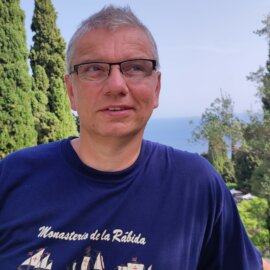
Marek Pawełczak
Warsaw Centre for Global History IDUB I.3.13 Action Team
MA in history 1994, doctorate (1999) and habilitation (2011) at the University of Warsaw. Scholarship holder, incl. Deutscher Akademischer Austauschdienst (Humboldt University in Berlin), Garstka Foundation (University of Notre Dame, IN) and the Polish-U.S. Fulbright Commission (Boston University). Prime Minister’s Award for habilitation thesis (2011). Research interests: History of East Africa and the Indian Ocean basin in the pre-colonial period, including the political organization of African societies, caravan and overseas trade, trade diasporas, the effects of the revolution in maritime transport and the influx of foreign capital in the 19th century, the informal empire of Great Britain in Africa. Also: power, society, religion and customary law in Africa during the colonial era.
more information...
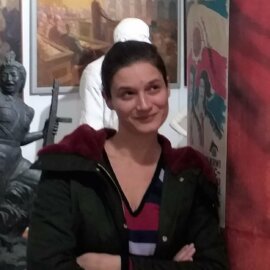
Laura Pozzi
Warsaw Centre for Global History IDUB I.3.13 Action Team
MA 2008 University of Venice Ca’ Foscari, Department of Oriental Studies (Venice, Italy)
PhD 2014 European University Institute Department of History and Civilization (Florence, Italy)
I am interested in the entanglements between global history, colonialism, and memory politics in the People’s Republic of China (PRC). My research applies the global history approach to the field of China’s museum and memory studies to escape the Eurocentric perspective on the history of knowledge transfer. It aims to globalize our viewpoint over the multiple history of China and to problematize the impact of the decolonial discourse over museum practices outside the European context. More precisely, I am interested in the impact of postcolonial and decolonial theories on the representation of Chinese history in museums and heritage sites at a global level.
more information...
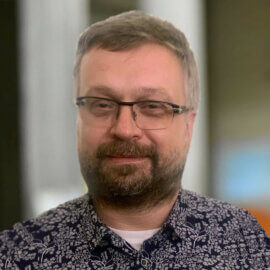
Piotr Szlanta
Warsaw Centre for Global History
Education: Ph.D. in History, Department of History, University of Warsaw, Warsaw, Poland, 2003; M.A. in Political Science, Department of International Relations, University of Warsaw, Warsaw, Poland, 1996; M.A. in History, Department of History, University of Warsaw, Warsaw, Poland, 1995
Professional profile: Historian and Political Scientist specialized in the 19th century colonialism, international relations, German-Polish relations in the 19th and 20th century, the First World War and eastern European modern history
Work experience:
2011- present Researcher, German Historical Institute, Warsaw (the project of an international First Word War, English speaking encyclopedia; area of responsibility East-Central Europe http://www.1914-1918-online.net/)
1996 – present Assistant Professor, Department of History, University of Warsaw, Warsaw, Poland
2009 Scholarship holder of Alexander von Humboldt Foundation, Humboldt Research Fellowship for Experienced Researchers, Berlin
1999-2000 Visiting Professor, Department of History, University of Notre Dame, South Bend, USA
more information...
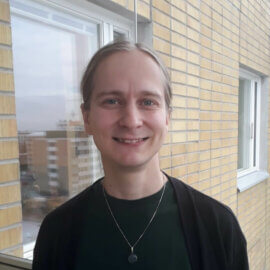
Mikko Toivanen
Warsaw Centre for Global History IDUB I.3.13 Action Team
Mikko Toivanen is a historian specialising in global and colonial history with a focus on the British and Dutch colonies in nineteenth-century Southeast Asia. His current research investigates the development of urban culture and ideas of public space in Singapore and Batavia in the latter half of the nineteenth century. Toivanen defended his PhD, on colonial travel and tourism in Southeast Asia, at the European University Institute (Florence, Italy) in 2019. He also holds a MA from Leiden University (2014) and a BA from the University of Warwick (2012). His further research interests include the history of Nordic colonial entanglements and the transnational circulations of imperial knowledge.
more information...
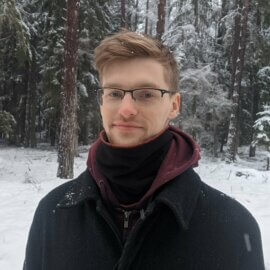
Adrian Warsiński
Warsaw Centre for Global History
Master’s degree in law at the University of Warsaw (2019), PhD student at the Doctoral School of Humanities of the University of Warsaw (2020-2024), study stay within the Erasmus+ programme at the Friedrich-Meinecke-Institut, Freie Universität Berlin (2021). From 2019 junior Co-Investigator in the research project “Great and Small Divergence as seen through the corporate glass: Central and Eastern Europeans in Asia in the 17th century” (National Science Center – OPUS 14, no. 2017/27/B/HS3/00151), from 2019 working at the Faculty of Law and Administration, University of Warsaw as a specialist in research, development and international cooperation, from 2021 member of the Global History Team at the Faculty of History, University of Warsaw.
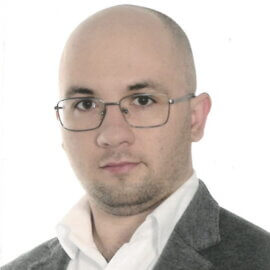
Adam Włodarski
Warsaw Centre for Global History
Ph.D. candidate at the Doctoral School of Humanities at the University of Warsaw (field of study: history). He graduated in history from the Faculty of History, University of Warsaw (Master of Arts, 2018), and in law from the Faculty of Law and Administration, University of Warsaw (Master of Arts, 2016). Junior Co-Investigator in the research project of the National Science Center no. 2017/27/B/HS3/00151, entitled “Wielka i Mała Rozbieżność” widziane przez szkła korporacji: mieszkańcy Europy Środkowo-Wschodniej w Azji w XVII wieku (“Tracing the Great and Little Divergence Through Corporate Lenses: Central-Eastern Europeans in Asia in the Seventeenth Century”).
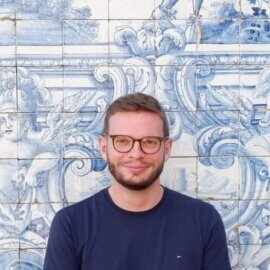
Sebastian Żbik
Sebastian Żbik, MA History at the University of Warsaw (2017), PhD Studies in History at the Faculty of History, University of Warsaw (2017-2023).
Selected publications:
“The Omani Prince Between Zanzibar, Oman and Bombay. Abdul Aziz bin Said’s Struggle for Power and Money in the Time of Growing British Dominance in the Indian Ocean Region” in Journal of Colonialism & Colonial History (1/2022);
„Wybrane przykłady zmiany kulturowej wśród omańskiej społeczności w Afryce Wschodniej w latach 1806-1856” [Selected Examples of the Cultural Change Within the Omani Community in East Africa from 1806 to 1856], a chapter in the publication after 5th Polish Congress of African Studies, Warsaw 2020, pp. 95-130;
„Wpływ środowiska geograficznego, społecznego i ekonomicznego Afryki Wschodniej na omański model osadnictwa w latach 1806-1856” [The Impact of the Geographical, Social and Economic Environment of East Africa on the Oman Settlement Model in 1806–1856], Studia Geohistorica, vol. 7 (2019), pp. 45-67;
„Dla ibadytów z Omanu i Zanzibaru Formy wsparcia wspólnoty ibadyckiej przez Arabów z Zanzibaru na podstawie wybranych waqfów i testamentów z lat 1890-196” [For Ibadites from Oman and Zanzibar. The Forms of Support for the Ibadi Community by the Arab Community from Zanzibar Based on Selected Waqfs and Wills from 1890-1964], Afryka. The Journal of the Polish Society of African Studies, vol. 49 (2019), pp. 111-134;
„Arabskie plantacje goździków na Zanzibarze i Pembie w XIX w.: uwarunkowania społeczne i kulturowe” [Arab Clove Plantations on Zanzibar and Pemba in the 19th Century: Social and Cultural Conditions] Afryka. The Journal of the Polish Society of African Studies, vol. 45 (2017), pp. 99-131.

